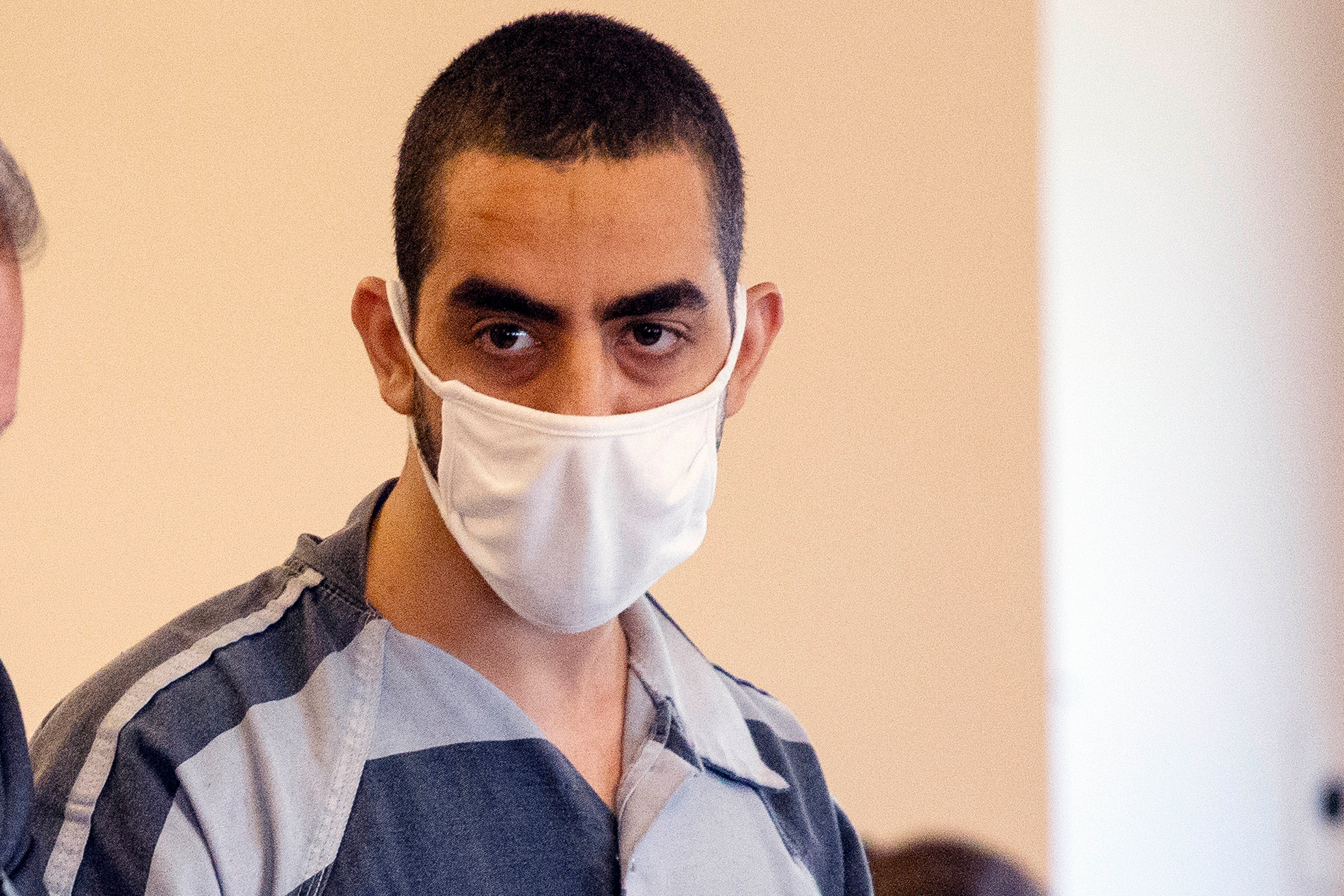Trial of man charged with stabbing Salman Rushdie may be delayed until author's memoir is published
Salman Rushdie’s plans to publish a book about a 2022 attempt on his life may delay the trial of his alleged attacker, which is scheduled to begin next week

Your support helps us to tell the story
From reproductive rights to climate change to Big Tech, The Independent is on the ground when the story is developing. Whether it's investigating the financials of Elon Musk's pro-Trump PAC or producing our latest documentary, 'The A Word', which shines a light on the American women fighting for reproductive rights, we know how important it is to parse out the facts from the messaging.
At such a critical moment in US history, we need reporters on the ground. Your donation allows us to keep sending journalists to speak to both sides of the story.
The Independent is trusted by Americans across the entire political spectrum. And unlike many other quality news outlets, we choose not to lock Americans out of our reporting and analysis with paywalls. We believe quality journalism should be available to everyone, paid for by those who can afford it.
Your support makes all the difference.Salman Rushdie's plans to publish a book about a 2022 attempt on his life may delay the trial of his alleged attacker, which is scheduled to begin next week, attorneys said Tuesday.
Hadi Matar, the man charged with repeatedly stabbing Rushdie as the author was being introduced for a lecture, is entitled to the manuscript and related material as part of his trial preparation, Chautauqua County Judge David Foley said during a pretrial conference.
Foley gave Matar and his attorney until Wednesday to decide if they want to delay the trial until they have the book in hand, either in advance from the publisher or once it has been released in April. Defense attorney Nathaniel Barone said after court that he favored a delay but would consult with Matar.
Jury selection is scheduled to begin Jan. 8.
“It's not just the book,” Barone said. “Every little note Rushdie wrote down, I get, I'm entitled to. Every discussion, every recording, anything he did in regard to this book.”
Rushdie, who was left blinded in his right eye and with a damaged left hand in the August 2022 attack, announced in October that he had written about the attack in a memoir: “Knife: Meditations After an Attempted Murder,” which is available for pre-order. Trial preparation was already well under way when the attorneys involved in the case learned about the book.
District Attorney Jason Schmidt said Rushdie's representatives had declined the prosecutor's request for a copy of the manuscript, citing intellectual property rights. Schmidt downplayed the relevance of the book at the upcoming trial, given that the attack was witnessed by a large, live audience and Rushdie himself could testify.
“There were recordings of it,” Schmidt said of the assault.
Matar, 26, of New Jersey has been held without bail since his arrest immediately after Rushdie was stabbed in front of a stunned audience at the Chautauqua Institution, a summer arts and education retreat in western New York.
Schmidt has said Matar was on a “mission to kill Mr. Rushdie” when he rushed from the audience to the stage and stabbed him more than a dozen times until being subdued by onlookers.
A motive for the attack was not disclosed. Matar, in a jailhouse interview with The New York Post after his arrest, praised late Iranian leader Ayatollah Ruhollah Khomeini and said Rushdie “attacked Islam.”
Rushdie, 75, spent years in hiding after Khomeini issued a 1989 edict, a fatwa, calling for his death after publication of his novel “The Satanic Verses,” which some Muslims consider blasphemous. Over the past two decades, Rushdie has traveled freely.
Matar was born in the U.S. but holds dual citizenship in Lebanon, where his parents were born. His mother has said that her son changed, becoming withdrawn and moody, after visiting his father in Lebanon in 2018.